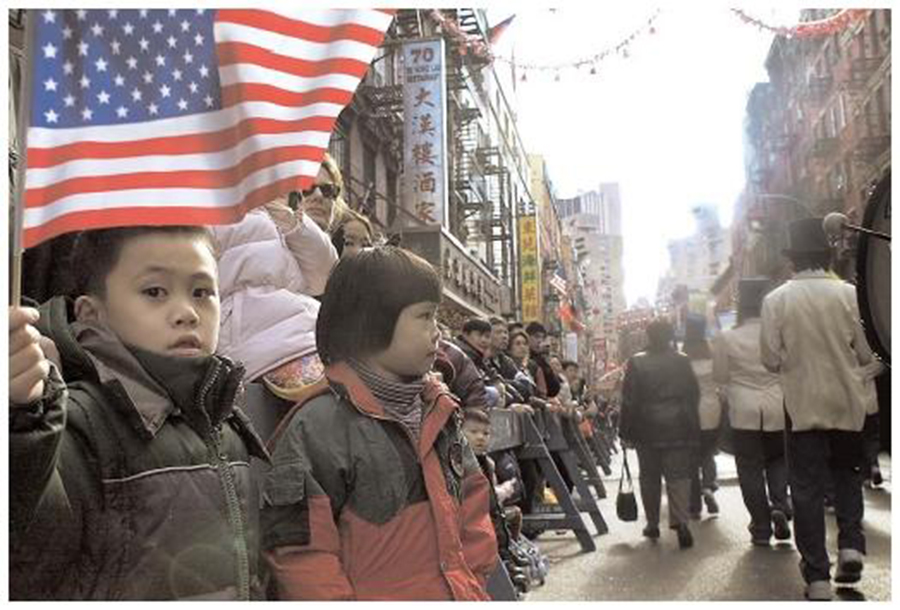Kuora: China and the U.S. are more alike than you think

This week’s column comes from one of Kaiser’s recent answers originally posted to Quora on January 25, 2019.
What western country does China have the most in common with culturally?
Not having lived extensively in any other countries than the United States and China, but being more than casually familiar with people from many other countries who, despite not being representative of their “national cultures” have provided at least some window into them, I’d say that the U.S. is the most like China. I think that explains the odd natural affinity, which can be almost obsessive and, like so many relationships based on affinity, can swing so wildly in mood.
Caveats are in order, but I won’t dwell. Both societies are pretty heterogeneous — the U.S. with its wonderful ethnic pluralism more so — and vary widely across geographies and even within individual cities or regions. In a sense, that heterogeneity is part of the cultural similarity, owing to the sheer size of the respective countries. But for purposes of this question, I’ll posit some notional “typical” American and Chinese person and her or his culture, make some unsupportably sweeping generalizations, and beg the reader’s forgiveness.
Americans tend to think their own values and institutions are universally applicable and should be adopted by everyone, while Chinese tend in contrast to think their values and institutions are so unique that they can’t be understood.
Both Americans and Chinese have a sense of themselves as exceptional, as singled out, whether by “history,” fate, or divine providence for some special destiny. This exceptionalism, as the very observant Greg Blandino once noted, takes very different forms: Americans, to generalize, tend to think their own values and institutions are universally applicable and should be adopted by everyone, while Chinese tend in contrast to think their values and institutions are so unique that they can’t really be understood, much less adopted, by other peoples. It’s an exaggeration, of course, but there’s truth in it.
Both Americans and Chinese nurture an idea that they’re self-contained and, should it come down to it, self-sufficient. They could exist without the rest of the world, and so why bother to learn another language, or go live abroad. Yes, yes, there are plenty of exceptions, and some wonderfully cosmopolitan types from both countries, but this notionally typical American and her or his Chinese counterpart aren’t that exception.
Related to these first two is that both have a center-of-the-world problem. They tend to lens everything the other does or says in terms of themselves, they tend to believe in a rightful place, either because of incumbency (the U.S.) or bygone glories (China), at the center of the world. This is not to say I believe, for instance, that Chinese foreign policy is all about recreating the so-called “Tribute System,” as some have argued, but both countries do have this self-obsessive tendency.
They’re both cultures that believe in meritocracy, even if that ideal translates rather imperfectly into reality in both countries. I think this is one of the most attractive features of both cultures. China has its own Horatio Alger stories, about savants from the humblest of origins who by pluck and hard work have risen to become ministers. The work ethic in both is similar. They find intrinsic virtue in effort and toil.
Both are highly entrepreneurial cultures, but this natural, undeniable entrepreneurialism plays out in societies that are conflicted over the morality of the profit motive. China has its Confucian values (which denigrated the merchant class and ranked them below the gentlemen [士 shì], the farmers, and the craftsmen), overlaid for a while at least with egalitarian and redistributive communist ideology; the U.S. has its Christianity, whose central figure, Jesus, famously drove the moneylenders from the Temple and made a virtue of poverty. This exists in tension with some pretty conspicuous materialism in both societies.
Both also have this genuine, irrepressible friendliness and decency that, of course, is just the loveliest thing. I find them both to be much more open than closed. They’re earnest, polite, optimistic, warm, and will over-share (okay, here Americans more than Chinese) given any opportunity to do so.
I am admittedly biased, being of both these worlds, but honestly, I think there’s so much more that unites Chinese and Americans culturally than can divide them politically. Or so I fondly hope.
Kuora is a weekly column.






